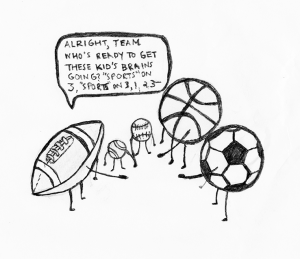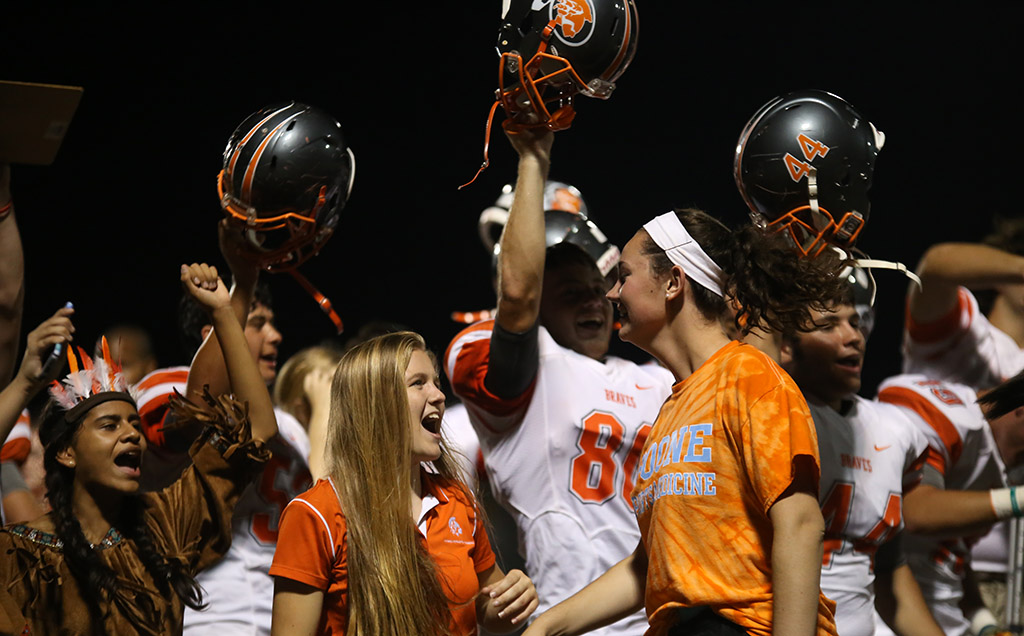
Although people attribute the nation’s mediocrity in education to America’s passion with high school sports, a greater pool of evidence suggests that school-sponsored sport programs provide safe outlets from crime and mischief, improve health and advance social skills and teamwork.
High school sports serve to reinforce academic achievement, particularly for those from less fortunate backgrounds. For various students, athletics become the only thing that keep them from becoming tangled in the web of crime, distributing and consuming illegal drugs and resorting to violence. According to the Australian Sports Commission, youth who participate in sports are less likely to commit crimes. Engaging in sports reduces the amount of unsupervised free time on one’s hands and prevents boredom.
Playing sports creates positive effects for girls and boys. In a Women’s Sport Foundation study, girls who play sports perform better at school and learn the importance of goal setting, strategizing and planning and become less likely to have sex or get pregnant at an early age.
Competing in sports also has health benefits. Kids who remain active in school sports have healthier body weights and portray more confidence. The risk of blood pressure, heart disease, osteoporosis and other chronic diseases are lower among physically active people, which makes it more important for children to appreciate the importance of physical activity at a young age.
Athletics provide an advantage when working in diverse situations in the workplace and in school.
Jomills Braddock II, director of the University of Miami’s Center for Research on Sport in Society, stated his team “found that individual students who participate in sports are less likely to be hostile or antagonistic toward other students regardless of their race or ethnicity. With sports, young people learn to recognize and value the unique and important contributions of their diverse teammates.”
Interactions on a team facilitate bonding and lasting friendships with schoolmates, which can help make children more sociable and outgoing when they mature.
According an The Atlantic study, school-sponsored sports appear to provide benefits that increase, not detract from, academic success.
Preliminary analyses also show that schools where teachers and principals place strong emphasis on sports and extracurricular activities experience lower levels of conflict among students of different races.
Although sports enhance a student’s overall well-being, they take focus away from the term “student first, athlete second.” When an athlete participates in a practice or game, homework gets pushed, forgotten and saved for late at night, which takes away sleep time. This becomes an unhealthy cycle for athletes.
Other countries in the top tier of international test scores like South Korea and Finland emphasize athletics far less in school. To combat this in America, sport seasons could be shortened with and shorter practices and less games per week.
Although games and practices distract from homework, Angela Lumpkin, professor of sport and exercise sciences at Texas Tech University, and Rebecca Achen, doctoral candidate and graduate teaching assistant at the University of Kansas, show that athletes had higher percentages of days of school attended, graduation rates and state assessment scores and lower dropout rates than nonathletes.
Sports not only keep one healthy, they increase the likelihood to perform well in school, and they help keep athletes away from crime and poor decision making. High school sport benefits outweigh the negatives. They do not kill academic performance, but rather, enhance it.
